FOURTH UPDATE ON NIGER CRISIS : TINUBU PUSHES FOR A COMPROMISE; BUT THREAT OF MILITARY INTERVENTION REMAINS
Highlights:
Top decision-making organ of the African Union overcome internal divisions to issue a belated communique.
Algeria reiterates its opposition to armed intervention in Niger and sends foreign minister to member-states of ECOWAS to lobby against it.
President Recep Erdogan of Turkey weighs in on the talk of military intervention in Niger.
Coup leaders of Niger suddenly receptive to peace dialogue. They allow Tinubu’s peace emissaries to meet President Mohammed Bazoum.
The French and the Americans bicker behind the scenes. The coup leaders allow the Americans to send a new Ambassador to Niamey as the French Ambassador is being asked to leave.
Tinubu publicly states that he is the one restraining the smaller-member states of ECOWAS who are pushing for military intervention. Thus, confirming what this author has been saying about the Nigerian leader.
At Tinubu’s insistence, ECOWAS is now haggling with Niger coup leaders over the length of their stay in power. However the threat of military intervention still looms in the background.
I. INTRODUCTION:
This is a follow up to the previous update, which I encourage you to read first, if you haven't done so already:
THIRD UPDATE ON NIGER CRISIS : MILITARY CHIEFS OF ECOWAS STATES ENDORSE INTERVENTION
I was in the middle of writing a detailed assessment of the successful 2023 Russia-Africa Summit, when some fresh information compelled me to take a break and write another update on the highly fluid situation in Niger Republic. For the benefit of those who are new readers, I will start with a preamble...
So, what has been happening since my last update on 19 August? Well, read on..
II. TOP ORGAN OF THE AFRICAN UNION FINALLY ISSUES A BELATED COMMUNIQUE
In my previous update, I explained that the African Union is united in condemning the coup in Niger Republic. However, there are disagreements on the subject of ECOWAS plan for a military intervention.
On 10 August, the African Union Commission—the administrative branch or secretariat of the African Union— issued a statement in support of the ECOWAS plan through its Chadian Chairman, Mr. Moussa Faki Mahamat. The website of the African Union has a summarized version of the statement here. A detailed version is also available on the same website in English (click link) and French (click link).
By contrast, there was bedlam in the Peace & Security Council (PSC), which is the organ in charge of enforcing African Union decisions. The PSC is structured in the style of the UN Security Council with two council seats for Northern Africa, three seats for Southern Africa, three seats for Eastern Africa, three seats for Central Africa and four seats for Western Africa.
On 14 August, the PSC convened a meeting to discuss the ECOWAS plan to intervene militarily in Niger Republic. Representatives of all subregions of Africa agreed that the coup in Niger was unacceptable. However, on the subject of military intervention, they vehemently disagreed.
Southern African countries (led by South Africa) and Northern African states (led by Algeria) voiced opposition to any forcible removal of the Niger coup leaders. Conversely, West African states were mostly in favour of armed intervention. As a result of this division, African Union Peace and Security Council did not issue an official communiqué on its attitude to the ECOWAS plan.
However, after backroom negotiations, the PSC finally issued a belated communique on Tuesday, 22 August, which can be accessed directly on their website by clicking here.
To summarize, the Peace and Security Council communiqué:
Condemns the coup leaders and suspends the participation of Niger Republic in all activities of the African Union until constitutional order is restored.
Takes note of ECOWAS decision to deploy a standby force, but supports the organisation in its attempt to resolve the Niger crisis by diplomatic means.
Commends Nigerian President Tinubu for his quest for a peaceful resolution of the Niger crisis and fully supports all sanctions imposed on Niger Republic.
Calls on the military junta in Niger to cooperate with the efforts being deployed by ECOWAS and the AU towards a peaceful and speedy restoration of constitutional order.
Requests the AU Commission to work with ECOWAS Commission to urgently compile and submit a list for the purposes of targeted sanctions, and the application of individual punitive measures. The list should contain the names of all members of the military junta and its supporters, including those involved in the violation of the fundamental human rights of President Mohammed Bazoum and other detainees.
Strongly rejects any external interference by any actor or any country outside the Continent in the peace and security affairs of Africa including engagements by private military companies in the continent in line with the 1977 OAU Convention for the Elimination of Mercenarism in Africa.
So, what does all of this mean? Well, the pro-interventionist West African states got the communique of the Peace and Security Council of the African Union to recognize the right of ECOWAS to intervene in Niger Republic; endorse the continuation of Nigeria’s withdrawal of free electricity and economic blockade of Niger; endorse tough sanctions on individual members of the junta; and impose a total ban on the participation of Niger in activities of the AU until constitutional order is restored.
The anti-interventionist Northern and Southern African states made sure the communiqué emphasized peaceful resolution of the conflict and commended Nigerian President Bola Tinubu for holding the line against his military chiefs and smaller ECOWAS states who want troops to charge into Niger Republic with long guns blazing with automatic fire. They also got the communique to condemn any external interference in the affairs of Africa, which is a roundabout way of telling the Americans and the French to back off.
The West African states in the PSC agreed with the request to tell off the French and the Americans about their meddling, but insisted that a roundabout condemnation of the Wagner Group be inserted into the communiqué.
This should not come as a shock to anybody. I have written several articles explaining that pro-Russian sentiment is not uniformly distributed across the continent. Anglophone African states, such as Ghana, Sierra Leone, Liberia, Mauritius, Botswana, Gambia, Kenya, Zambia, Nigeria and so on, have decent relations with Russia and China, but their ruling elites and the vast majority of their citizens are largely orientated towards the UK and USA.

In my article about Wagner operations in Africa, I reported that the Ghanaian government is alarmed that Prigozhin’s mercenary force is operating inside a town in Burkina Faso, which is only a few miles from Ghana’s northern frontier. This issue even led to a brief diplomatic spat between Burkina Faso and Ghana. The Ghanaian government only has semi-official relations with Burkina Faso as it does not really recognize the legitimacy of Captain Ibrahim Traore’s military regime.
That said, Ghana continues to enjoy amicable relations with the Russian Federation and sent a ministerial delegation to the Second Russia-Africa Summit in St. Petersburg. Nevertheless, growing relations with UK and USA will always take the front seat in Ghana. That is simply the way things are.

As a matter of principle, Nigeria is generally hostile to irregular military formations and that includes mercenaries. This dates all the way back to the Nigeria-Biafra Civil War (1967-1970), which featured small numbers of paid mercenaries and unpaid volunteers from Europe fighting alongside the armed forces of the breakaway Republic of Biafra in its failed bid to survive the scorched-earth war being waged against it by the Nigerian Federal State.
III. ALGERIA ISSUES A COMMUNIQUE ON THE NIGER-ECOWAS STAND-OFF AND THEN LAUNCHES A BIG DIPLOMATIC CAMPAIGN IN WEST AFRICA
Algeria reiterated its opposition to any forcible removal of the putschists by expressing regrets that ECOWAS was minded to take that approach. The North African nation issued a communique in Arabic and French through the official twitter handle of its Ministry of Foreign Affairs, which can be accessed by clicking here.
I have also taken the liberty of posting a photographic image:
Since the document above is written in French, I have added my own translation below:
At a time when military intervention in Niger is becoming clearer, Algeria deeply regrets that the use of violence has taken the lead on the path of a negotiated political solution peacefully restoring constitutional and democratic order in this brother and neighbouring country.
Algeria remains, in fact, with a strong conviction that this negotiated political solution is still possible, that all the paths that can lead to it have not been taken and that all these possibilities have not been exhausted.
The history of our region abundantly teaches that military interventions have carried a lot of problems than solutions and that they have been additional factors of clashes and heartbreaks rather than sources of stability and security.
Before the irreparable is committed, and before the region is caught in the spiral of violence whose incalculable consequences no one can predict, Algeria calls on all parties to restraint, wisdom and reason that all command to resolutely restore the highest priority to the negotiated political option to the current constitutional crisis, thus saving Niger and the entire region from the days heavy with threats and dangers, in particular Region.
Algiers, 19 August 2023
Just as I explained here and here, Algeria is vehemently against military intervention by ECOWAS, but will not do anything to interfere should it eventually happen as it would not want to jeopardize its security and economic relations with Nigeria and other West African countries.
Having noticed some “strange activities” on the military airfields of certain ECOWAS countries, Algeria is now seeking to repatriate its citizens from Niger Republic. There is also talk of Gendarmerie Gardes-Frontires closing the Algerian side of the 951-km-long desert frontier with Niger.

Talking of “strange activities”, the Nigeria’s military high command is now said to be assembling hundreds of armoured vehicles, preparing thousands of Nigerian soldiers and making plans to facilitate the movement of Senegalese, Ivorian, Beninese, Ghanaian and Guinea Bissauan soldiers to the Nigeria-Niger Border. All this is happening at a time when Tinubu is still sending delegations upon delegations of peace emissaries to Niger Republic.
Algerian President Abdelmadjid Tebboune still believes that a military intervention can be stopped by sound diplomacy and has sent his Minister of Foreign Affairs, Mr. Ahmed Attaf, on a whistle-stop tour of Nigeria, Benin Republic and Ghana to lobby against forcible removal the Niger junta.

It is my considered opinion that the anti-interventionist message of Ahmed Attaf would be well received by the federal government led by Tinubu, which is now having second thoughts about the intervention given domestic opposition within Nigeria.
By contrast, the Algerian Foreign Minister would have a tougher time in Ghana and Benin Republic as both countries are pro-interventionist hardliners within ECOWAS.
Algeria is suggesting that the putschists of Niger be given six months to restore constitutional order in their country. Tinubu would probably be open to that suggestion, but would the rest of ECOWAS support that? We will see.
IV. TURKISH PRESIDENT RECEP ERDOGAN WEIGHS IN
Ever since the NATO-sponsored dissolution of the Great Socialist People's Libyan Arab Republic in October 2011, President Recep Erdogan has taken a keen interest in the continent of Africa, and that includes West African states on the Sahel Belt.
The destruction of Libya’s statehood left its war-torn landscape in a state of de facto partition with two warring sides claiming to be the legitimate national government. On one side, there was the Islamist-tinged GNA regime, which controlled the capital city of Tripoli and the western part of Libya. On other side, there was Field Marshal Khalifa Haftar’s control of east and central parts of Libya.
The UAE and Egypt backed Khalifa Haftar’s claim on being the sole legitimate authority for all of Libya while Turkey and Qatar backed the rival claim of the Islamist regime in control of the Libyan capital city.
In October 2018, Wagner mercenaries officially made their debut appearance in North Africa on the side of Marshal Khalifa Haftar’s military forces as I reported in my article on Wagner’s activities in Africa.
In response to UAE arming Haftar’s military forces, the Turkish leader, Recep Erdogan, began supplying weapons to his Islamist allies in West Libya. The famously overrated Turkish-made Bayraktar TB2 aerial drones went into service against the forces of Marshal Khalifa Haftar, but not before Erdogan has extracted a price from his Libyan allies.
To please the Neo-Ottoman Sultan, the Islamist GNA regime of Libya signed a controversial maritime deal on 27 November 2019 to establish an exclusive economic zone (EEZ) in the area bound by the coasts of Turkey and Libya. The only problem, of course, being that inside the newly established EEZ are the Greek Islands of Crete, Kasos, Karpathos, Kastellorizo and Rhodes. In other words, the Turkish-Libyan GNA regime deal seems to be sending the message that those five islands are now lost to Greece. So dear readers, you can imagine how Greece, Cyprus, the European Union and meddlesome United States of America reacted to this maritime deal.
Anyways, the maritime deal solidified Turkey’s commitment to the war against Khalifa Haftar’s private army, which was trying to storm Tripoli and western Libya. More heavy weapons flowed from Turkey to the fighters allied to the GNA regime. The Bayraktar TB2 aerial drones decimated Haftar’s advancing army and imposed a stalemate on the battlefield.
With the battlefield stalemate came peace talks that culminated in a “permanent ceasefire” in October 2020 and a final agreement in March 2021 that merged the two warring sides into the provisional Government of National Unity, which is now the internationally recognized government of Libya.
But, a happy ending to the Libyan conflict is not yet in the horizon. On 3 March 2022, Marshal Khalifa Haftar and his allies backed the formation of yet another governmental entity called the Government of National Stability to challenge the authority of the internationally-recognized Government of National Unity. Both rival governments currently co-exist side by side. Each claims that the military force under its control is the “Libyan Army”. Last year, the two rival “Libyan Armies” fought each other on the streets of Tripoli.
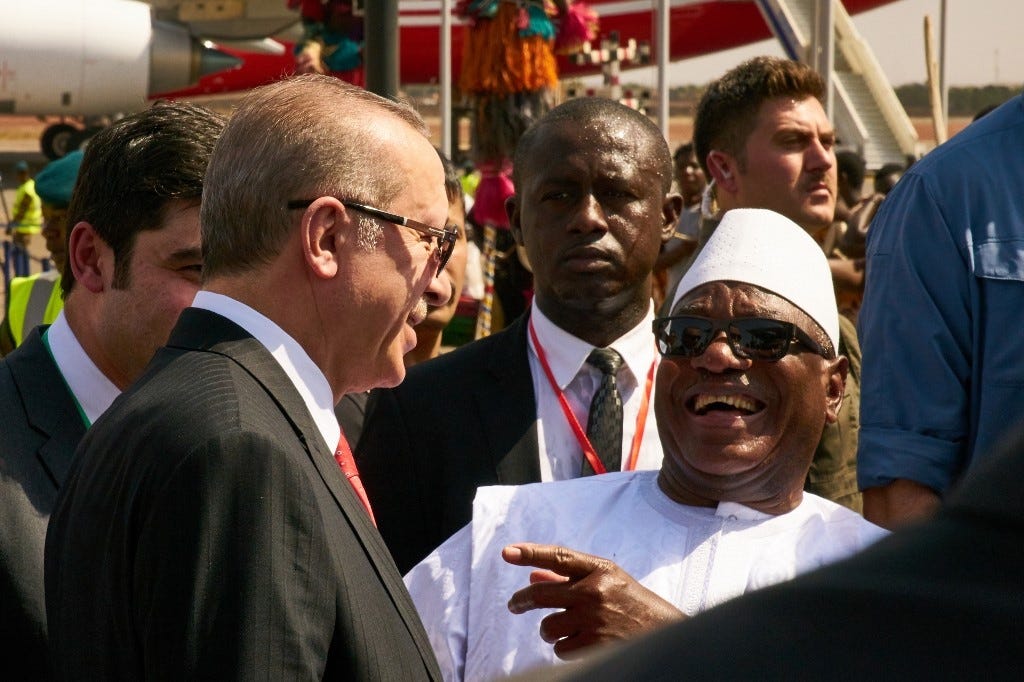
With his foot firmly in the North African door, Recep Erdogan visited Algeria and Tunisia before venturing deeper into the hinterlands of the continent in search of new friends. He visited Sudan, Mauritania, Somalia, Ethiopia, Nigeria, Ghana, Guinea, Gambia, Ivory Coast, Uganda, Djibouti, Mali, Senegal, Democratic Republic of the Congo, Equatorial Guinea, Kenya, Tanzania, Mozambique, Madagascar, Chad, Guinea-Bissau, South Africa, Zambia and Niger.
Some of the listed of countries were visited multiple times. For instance, Erdogan has visited Tunisia twice (2017 and 2019); Algeria thrice (2014, 2018 and 2020), Nigeria twice (2016 and 2021), Somalia twice (2015 and 2016).
Accompanying these visits with Erdogan were Turkish investors and plans to open embassies in sub Saharan African countries where Turkey had no diplomatic presence. For instance, Turkey opened an embassy in Togo where it had no previous presence beyond the Turkish scholarship scheme for Togolese students, which was instituted in 1992 by the government of Turgut Özal.

With Erdogan’s encouragement, Turkish investors have poured money into various African countries. In Senegal alone, the volume of bilateral trade between Turkey and Senegal had reached $540m, with plans to increase it to over a billion dollars in the works.
The Turkish Cooperation and Coordination Agency (TIKA) has also invested in Senegal and says that it has “completed 186 projects in Senegal with a total value of $12m”. It has also invested in several capital projects in Gabon, Cameroon, Tunisia, Somalia, South Africa, Chad, Gambia, Uganda, Swaziland and Lesotho.
Turkish multinational construction company, SUMMA, has also been very busy on the continent of Africa. I will just post a few examples of the work the company has been carrying out in various African states.
In Senegal, the construction company built the Diamniadio Olympic Stadium, Blaise Diagne International Airport, Dakar Expo Centre, Dakar Sports Arena and Dakar International Conference Centre.
All photos below can be enlarged by clicking on them
(1) Blaise Diagne International Airport:

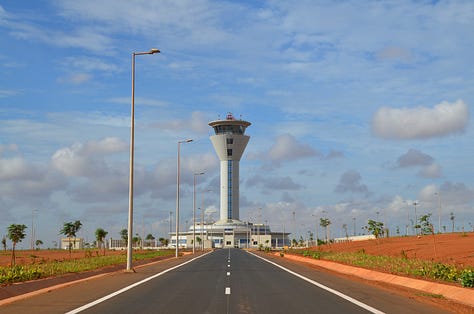
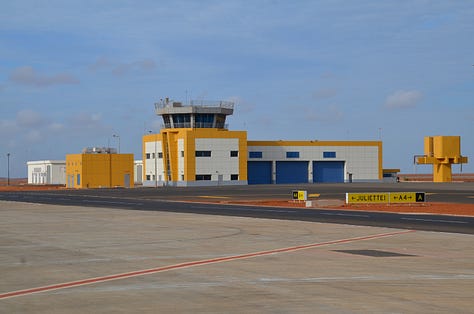
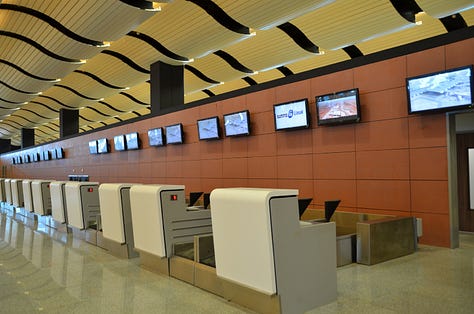
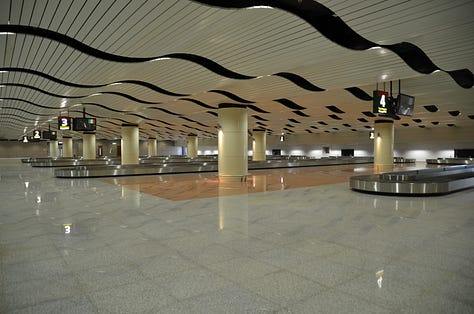

(2) Diamniadio Olympic Stadium and its facilities:
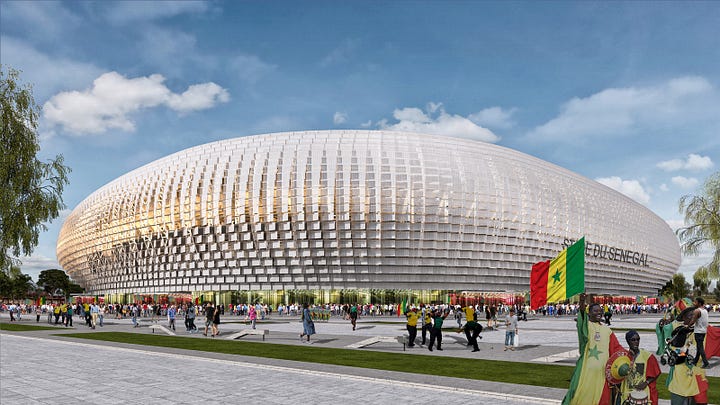


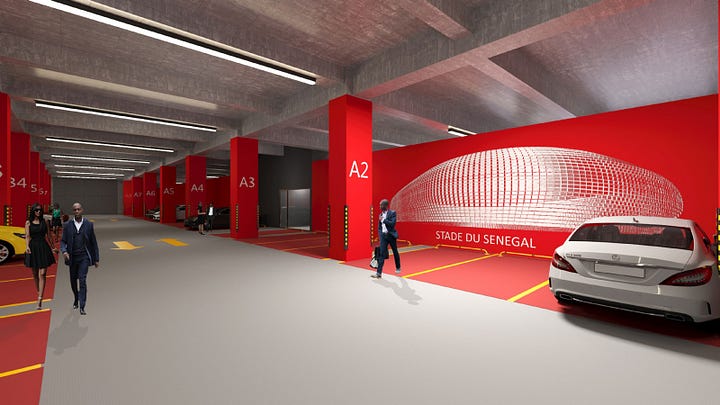
(3) Dakar Sports Arena:

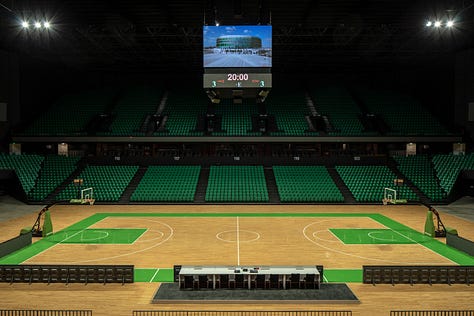
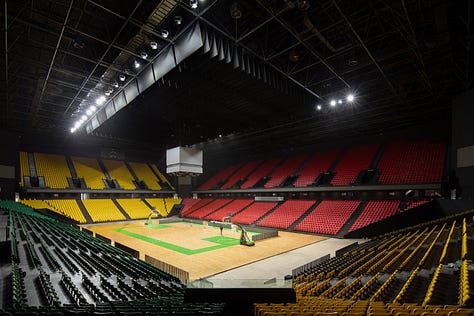
(4) Dakar Expo Centre:
(5) Dakar International Conference Centre:
In Rwanda, the Turkish multinational company constructed the Kigali Sports Arena and the Kigali Convention Centre.
(6) Kigali Sports Arena:

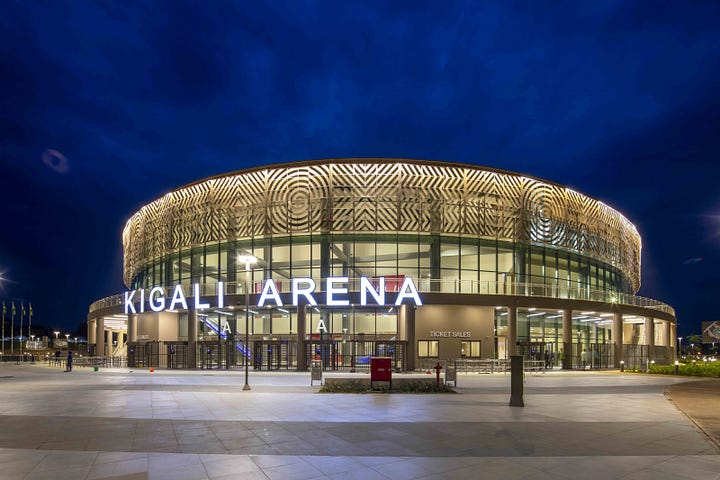

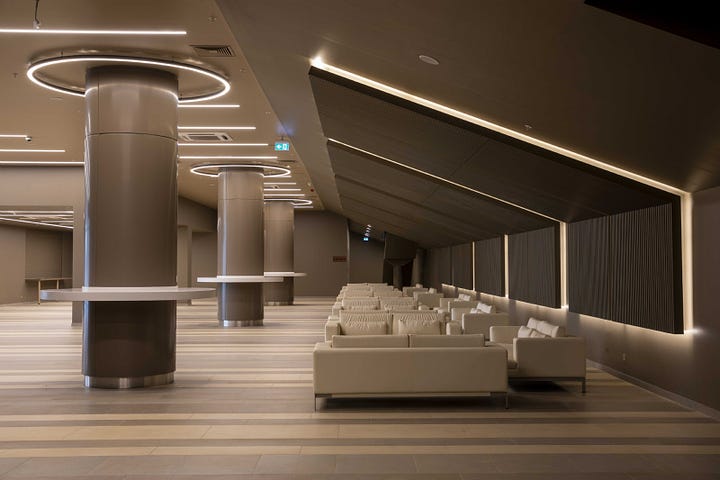
(7) The Kigali Convention Centre:

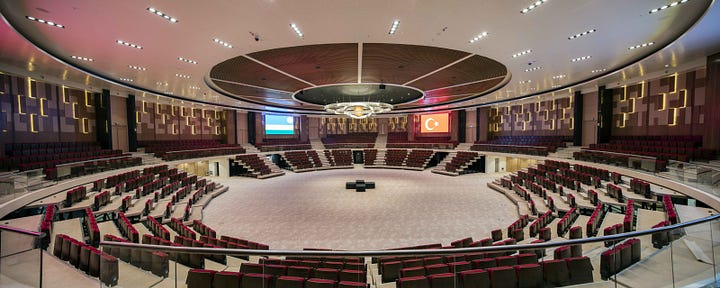
In Niger Republic, it built the Diori Hamani International Airport, Radisson Blu Hotel & Conference Centre and a brand new building for the Ministry of Finance.
(8) Diori Hamani International Airport:


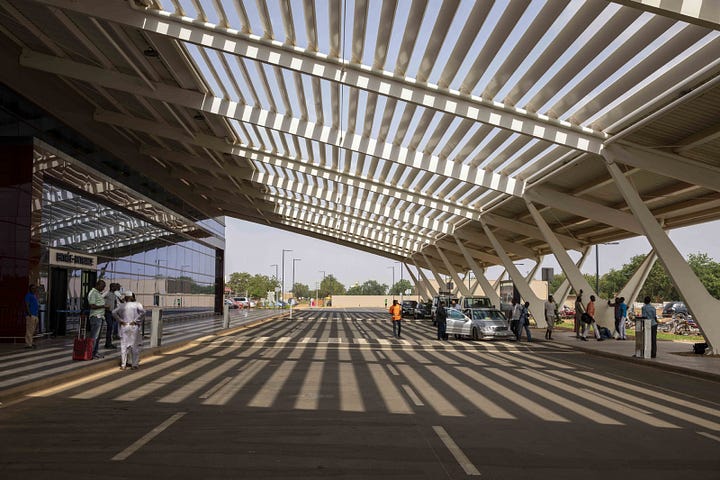

(9) Ministry of Finance building:
(10) Radisson Blu Hotel & Conference Center:
In Republic of Congo, the company constructed the Brazzaville City Centre Complex and Kintele Congress Centre. (This particular Congolese state should not be confused with the much larger landlocked Democratic Republic of Congo).
(11) Brazzaville City Centre Complex:


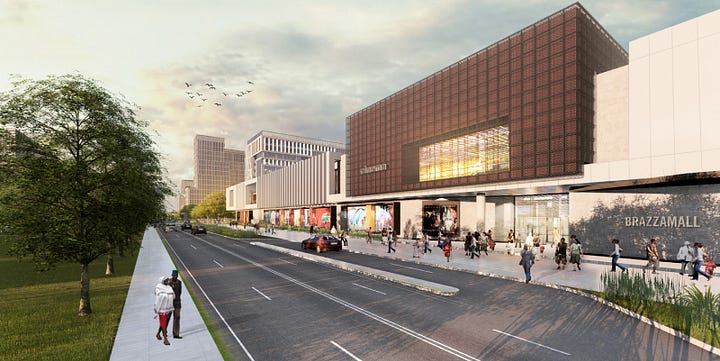

(12) Kintele Congress Centre:
In Equatorial Guinea, the company built Oyala Government Building, Sipopo Shopping Mall and Sipopo Congress Centre.
(13) Oyala Government Building:

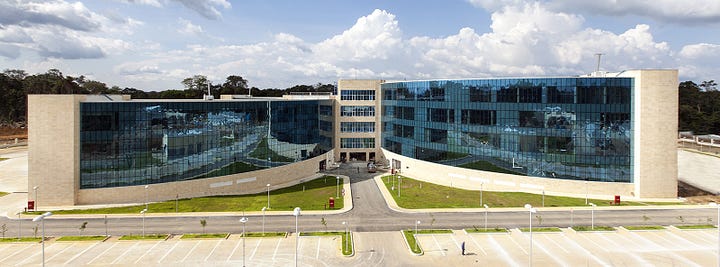


(14) Sipopo Congress Centre:
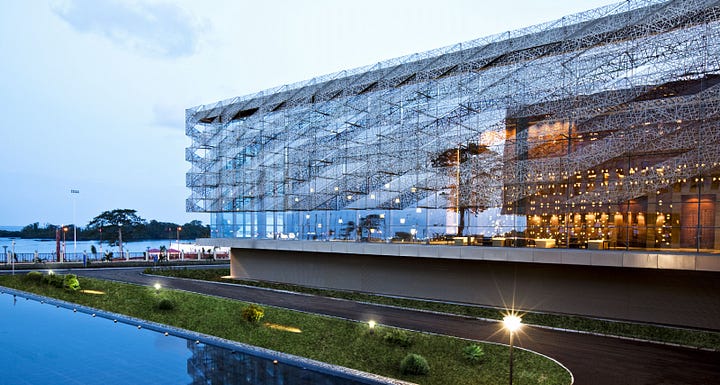
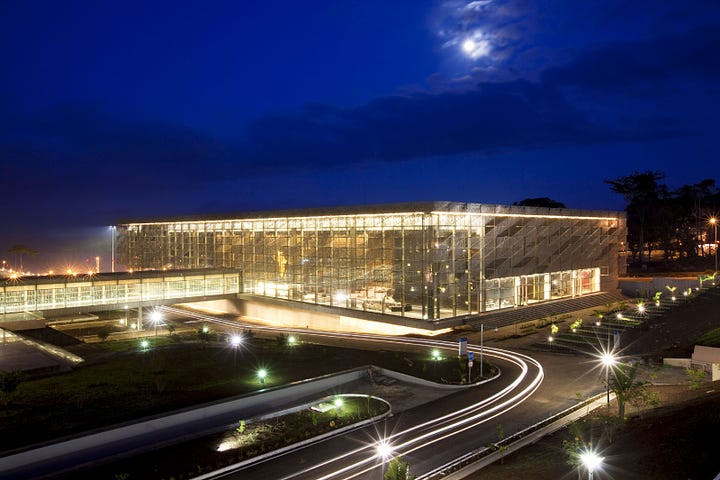


If you are feeling jaded by the video and all those pictures of Turkish construction works posted above, then you have my apologies. But those are just a few examples of what various private and government-owned entities of Turkey are doing in African countries ranging from Egypt in the Northern subregion to South Africa in the Southern subregion.
To rival what the Chinese have been doing since year 2000, President Erdogan began to organize his own summits with Africa. The first Turkish-African summit took place in the city of Istanbul on 18-21 August 2008. The second one was held in the Equatorial Guinean city of Malabo on 19-21 November 2014 and the third one occurred in Istanbul on 21-22 October 2021.
Here is a very short video clip of the third Turkish-African Summit (2021):
Having secured small military bases in Somalia, Morocco and Tunisia; organized three Turkish-African summits; and invested in some of the infrastructure sprouting all over the tropical continent, President Erdogan feels that his voice cannot be ignored when it comes to the events unfolding in Niger Republic. After all, he had signed arms deals and built various structures in the capital city of Niamey.
“Turkey is opposed to ECOWAS military intervention,” said Erdogan to journalists while he was on a trip to Hungary. He cited the threats made by Malian and Burkinabe military regimes about rallying to support the coup leaders of Niger Republic, and echoed Algeria’s comments about the risk of widespread regional instability.
As l have stated before, Mali and Burkina Faso do not pose any real danger to a Nigerian-led ECOWAS intervention in Niger Republic. More on that later.
V. NIGER JUNTA IS NOW RECEPTIVE TO DIALOGUE
Following the decision of military chiefs of ECOWAS member-states to endorse armed intervention, the coup leaders of Niger have suddenly become receptive to peace negotiations.
Jettisoning their standoffish attitude, the head of the Niger junta requested a meeting with President Tinubu's Northern Nigerian emissaries and the President of the ECOWAS Commission.
The military junta leaders proposed a three-year-transition back to civilian democratic rule. ECOWAS Commission rejected the proposal, calling it an attempt by Niger coup leaders to pacify the organisation as they continue to consolidate their hold on power.
The proposal of the Niger junta is nothing new. After the September 2021 putsch that toppled Guinean President Alpha Conde from office, the coup leaders of the Guinean Army successfully pacified ECOWAS and prevented any military intervention by falsely promising to organise elections shortly after coming to power. Two years later, the junta leaders of Guinea are yet to keep their promise.
Recently, a token civilian member of the Guinean military junta, Bernard Goumou, appeared on TV and told a journalist that Guinea has no money to conduct elections and so, a request for funding is being filed with ECOWAS.
Here is the video clip:
Guinea is the world's second largest producer of Bauxite, but its military rulers are claiming not to have funds for elections. And no, it is not the fault of bumbling Macron or his predecessors. Guinea was the first among the handful of Francophone African nations that managed to escape the neocolonial La Francafrique system. Despite this, the country is a total mess due to political instability engendered by incessant military coups.
VI. AHMED TOURE VERSUS CHARLES DE GAULLE
Republic of Guinea, was the first francophone African nation to escape the quasi-colonial “La Francafrique” policy in the late 1950s. The French colossus, General Charles de Gaulle, famously forgot his trademark kepi cap on a conference table in Guinea’s capital city of Conakry as he angrily stormed out of a meeting with the Guinean leader, Ahmed Sekou Touré , who had told the French President that Guineans would rather starve to death than agree to convert their homeland from a colony into an autonomous vassal state of France.
Indeed, Guinea was the only Francophone African colony to vote in a referendum against membership of Communauté Française, a supranational entity that transformed the colonies into quasi-independent client states of metropolitan France.
For insisting on real independence, the French colonial regime destroyed most of the infrastructure it had built on Guinean territory before pulling out its colonial administrators, technocrats and military troops.
One of the highlights of the vandalism wreaked by departing colonial administrators was the cutting of telephone lines; destruction of blueprints for a sewage pipeline network in Conakry; the burning of medicines meant for Guinean hospitals; and my personal favourite… the unscrewing of all office light bulbs.
To deter other colonies from emulating Guinea, President Charles De Gaulle imposed a total ban on any kind of French investment in the renegade colony and terminated pension payments to Guinean veterans who had fought for France in World War II.

Once the French colonial administrators and troops had gone, the abandoned rebel colony declared itself a sovereign nation on 2 October 1958, making it the first Francophone African nation to do so. It was also the first to drop the CFA Franc as currency after independence, and one of a few Francophone countries that did not have French military bases on its territory after gaining admission to the United Nations as a sovereign state— a UN membership admission that France tried unsuccessfully to block.
The now defunct French Secret Service, the SDECE, invested a lot of time and money cooking up several plots to destroy the government of post-independence Guinea, none of which were successful.
Quite surprising for a secret service notorious for its effective use of Corsican gangsters as cut-outs for its dirty work, and its successful wave of assassinations of Nationalist and Marxist politicians in Francophone Africa in the 1950s, 1960s and 1970s.
The bungling failures of the SDECE in Guinea not only allowed President Ahmed Sekou Touré to survive and consolidate his power, it caused the already strained diplomatic relations between France and its former colony to further deteriorate. Eventually, Touré severed all links between Guinea and France.
Touré would then go on to rule Guinea for 26 years as an authoritarian leader, banning all opposition political parties, imprisoning or killing dissidents, until his death from a heart attack on 26 March 1984.
Just hours after his death, a military coup occurred and a new junta led Colonel Lansana Conte came to power. A year later, on 4 July 1985, another coup led by ethnic Mandinka soldiers occurred. It was unsuccessful and all Mandika soldiers, regardless of guilt or innocence, were mercilessly purged from the army. Conte would go on to rule Guinea for 24 years before dying at the age of 74 on 22 December 2008.
In keeping with tradition, a few hours after Conte's death, a coup d'état occurred and a new junta came to power. Mass protests broke out a year later. One military junta leader Captain Moussa Dadis Camara was replaced by another junta leader, General Sékouba Konaté. Then came democratic elections that brought civilian President Alpha Conde to power.
President Conde was overthrown in yet another military coup on 5 September 2021.
Thanks to corruption and the flux of political instability, engendered by incessant coups, Guinea remains a poor nation despite its solid mineral riches. And France has no role in that.
End of digression, now back to the Niger crisis…
VII. OUSTED PRESIDENT BAZOUM MAKES A CAMEO APPEARANCE
Given domestic opposition within Nigeria, President Bola Tinubu is now favouring peaceful negotiations over military intervention.
He is still banking on his Northern Nigerian emissaries— Former Head of State Abdulsalami Abubakar and Sultan of Sokoto Muhammad Sa'ad Abubakar III— to give him something that he could use to douse the passions of the pro-interventionist hardliners.
The emissaries did not disappoint. They got the coup leaders of Niger to give them access to the detained President Mohammed Bazoum. Pictures were taken and a video clip recorded as shown below:
The Former Nigerian Head of State, retired General Abdulsalami Abubakar, also spoke to the media while still in Niger.
Speaking in Hausa, the language commonly spoken in Northern Nigeria and Southern Niger, he told the press that Bazoum had told him how he was being treated by the new military junta. When asked how the ousted Niger President was being treated under house arrest, Abubakar refused to give details.
He also told the press that what he and other emissaries had discussed with the coup leaders would remain confidential until he has briefed President Tinubu on the outcome of the peace mission.
In my humble opinion, the Niger coup leader’s newfound conciliatory gestures have given President Tinubu something fresh to work with. Nevertheless, these gestures are not enough to calm the pro-interventionists within ECOWAS and in the Nigerian military establishment. The coup leader’s talk of a three-year transition back to democratic rule is a non-starter for the smaller member-states pushing for armed intervention.
Ghanaian diplomat, Mr. Abdel Fatau, who functions as ECOWAS Commissioner For Politics, Peace & Security, reacted to the junta’s proposal for a period of 3 years to prepare Niger for elected governance by calling it “a complete provocation”. He added that the coup in Niger was one too many for the West African region and must be reversed.
Meanwhile, the dovish former Nigerian Head of State, retired General Abdulsalami Abubakar, returned home and went to the capital city of Abuja to brief President Bola Tinubu on the outcome of the peace dialogue with the junta leaders.
After his meeting with Tinubu, the retired General granted an audience to a group of Nigerian journalists waiting for him outside the Aso Rock Presidential Villa:
From what the retired General said, it seems President Tinubu has quietly and deftly converted his personal emissaries into the official peace envoys of ECOWAS to work alongside the hardline pro-interventionist Gambian diplomat, Omar Alieu Tourey, who is President of the ECOWAS Commission.
After meeting journalists of Nigerian TV channels, the retired General granted a short sit-down interview to a Nigerian reporter working for the British Broadcasting Corporation (BBC).
During that interview, he opened up about Bazoum’s condition under house arrest and reiterated his opinion about the need to avoid war:
I believe that the words of this retired general from Northern Nigeria carries more weight with Tinubu than the bloviations of Macron, Blinken, Sullivan and Nuland about “democracy being at stake”. Only pundits who don’t understand Nigeria’s political culture would dismiss the depth of influence wielded by men like Abdulsalami Abubakar and Muhammad Sa’ad Abubakar III.
VIII. FRENCH ANGER AT THE UNITED STATES
Meanwhile, there is trouble in NATO paradise. France is furious that the Americans are willing to engage with the coup leaders. Let me reproduce what I said in my Second Update on the Niger Crisis:
The only thing that currently worries American officials is Niger Republic falling under the influence of Russia. That would be humiliating for them. If the coup leaders are perceived as hostile to both Russia and France, the Americans would happily accept the military junta in Niger. What France wants or needs is furthest from the minds of Tony Blinken, Jake Sullivan and Victoria Nuland. For those American officials, it is all about Russia. They couldn't care less about Macron's lamentations about the unravelling of “La Francafrique.”
American officials such as Victoria Nuland and Tony Blinken are well aware that USA is not the subject of anger sweeping Francophone Africa. Instead, the civil unrest spreading like bushfire in certain parts of the continent is the inchoate resolution of the specific problem of France refusing to let go of its former African colonies.
The UK, Spain, Italy and Portugal have since moved on from the glory days of colonial empires, but France has not. And now, the French are being forced, in the most humiliating way possible, to face the consequences of their decisions.
Anglophone and Lusophone Africa is mostly quiet. Parts of Francophone Africa is fighting to overthrow Charles De Gaulle’s La Francafrique system.
Nobody on the continent is burning American flags, vandalising US diplomatic buildings or holding anti-American demonstrations. Same applies to UK and EU; nobody is protesting them either.
Demonstrators in both Mali and Burkina Faso are only burning properties and flags belonging to France. The military regimes in both countries have expelled French diplomats while diplomats of the USA and other European states are free to move around without any problems. Non-governmental organisations funded by the Macron government have been banned in Mali, but those funded by USA are free to carry on without hinderance.
Just like in Mali and Burkina Faso, the vitriol in Niger Republic is reserved specifically for France. Unsurprisingly, the coup leaders are calling on all 1,500 French troops stationed in Niger to leave, but have not said anything about 1,100 American troops in their country. The mass demonstrations in Southern Niger is focussed on France (and increasingly at ECOWAS), but USA is mostly left off the hook. Of course, this could change in the future. But, as of now, the Americans have nothing to worry about, except their russophobic paranoia.
As I have stated in all previous four articles on the Niger crisis, the only thing the Americans care about is the “terrifying” spectre of Russian influence.
Niger is a secondary producer of uranium as its contribution to world uranium production is a paltry 4.1 percent, so the Americans have no concerns about that.
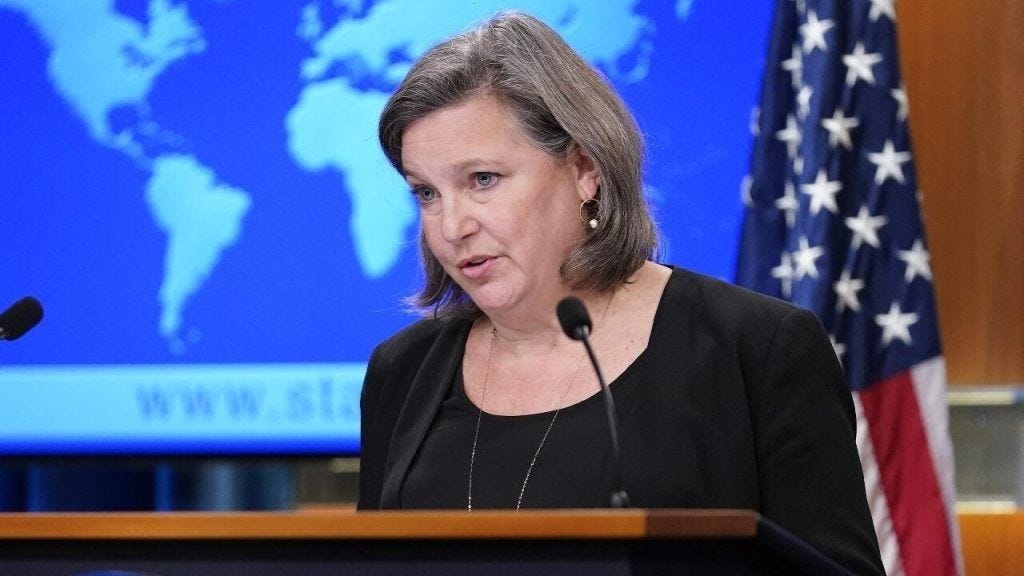
Blinken, Nuland and Sullivan are worried that anti-French anger in Niger could lead directly to the Wagner Group or a similar Russian mercenary outfit setting up camp inside yet another Francophone African state.
Since Nuland, Blinken and Sullivan believe mercenary outfits to be Kremlin tools of influence, they want certain assurances from the coup leaders, some of whom had benefitted from American military training.
Tony Blinken and Vicky Nuland have taken turns to speak to the junta leaders about their concerns. But, from the look of things, it seems the Americans did not get the requisite assurance that Russian “tourists” in desert camouflage uniforms would not suddenly turn up in Niamey, Zinder, Bilma and Agadez.
Nevertheless, the Americans seem happy that pro-Wagner rhetoric from the coup leaders have withered away. And now that Prigozhin is dead, it is unlikely that the coup leaders of Niger would ever mention Wagner again in their public statements.
To the chagrin of the Macron government, which wants no engagement whatsoever with the military junta, the US government is sending a new ambassador to Niger by the name of Kathleen FitzGibbon.
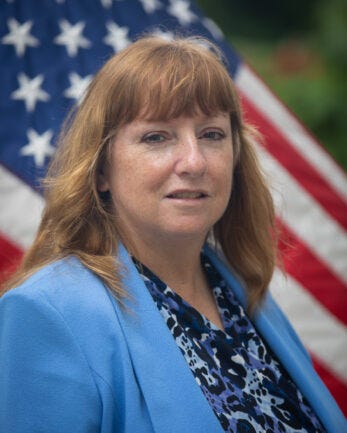
The US government has said the new Ambassador would not present her diplomatic credentials to the officials of the Niger Foreign Ministry, since their authority is not recognized by any other country (except Guinea, Burkina Faso and Mali).
In spite that declaration, the mere fact that the United States is sending a new ambassador signals to me a de facto recognition of the military junta. I sense a hedging of bets from the American side while the French remain implacable.
Meanwhile, initial written démarches declaring that the Ambassadors of Nigeria, Germany, France and USA have all been asked to leave for refusing to meet unrecognized officials of the Niger Foreign Ministry have been disavowed by the coup leader General Abdourahamane Tchiani who says that only the French Ambassador is getting expelled.
Apparently, there were disagreements among members of the military junta— the hardliners wanted all four Ambassadors expelled for defying the authority of their Foreign Ministry while more cool-headed ones led by General Tchiani only wanted to make an example out of the French Ambassador.
IX. MALI AND BURKINA FASO RESPOND TO ECOWAS SABRE-RATTLING WITH SOME SABRE-RATTLING OF THEIR OWN
One of the great ironies of this affair is that the military regime in Mali contains officials who were foot soldiers in the Nigerian-led ECOWAS intervention in Gambia, six years ago. But that was then and this is now.
In response to ECOWAS sabre-rattling, the Malian military regime has said that it will send planes and men to help stop a military intervention by Nigeria.
Hilariously, the military ruler of Mali added that his army would also invade Nigeria to bring back the “rightful winner” of the 2023 election. “We are fully aware of the real winner of the presidential election,” he intoned.
The small armed forces of Mali have lost large swathes of territory to jihadists and barely patrol the country’s national borders. Therefore, it is doubtful that Mali’s public parade of what it claims are “special forces” and a few jet planes would have any effect on the plans of Nigeria’s Military High Command, should an ECOWAS intervention in Niger be authorized.
As I have stated in previous updates, Wagner mercenaries are the ones preventing Mali from being overrun by jihadists. The same thing applies to Burkina Faso, which has also declared that it would send soldiers to fight on behalf of the Niger putschists.
Would be great if the Burkinabe military regime could apply those soldiers in a mission to recover the 40% of Burkina Faso territory currently under the yoke of jihadist terrorists.
X. TINUBU CONFIRMS HE IS THE DOVE AMONG HAWKS AND IS NOW HAGGLING WITH THE JUNTA
As I have been at pains to explain, Tinubu has since lost his appetite for military intervention in Niger Republic, but is being steered in that direction by three forces, which I will mention in the order of their influence on him:
Nigerian security and military establishment worried about Niger junta’s lack of cooperation on security patrols along the 1,600 km border prone to jihadi infiltration. Nigeria has a population of over 200 million citizens. Therefore, the prospect of a mass breakthrough of crazed jihadist terrorists through the border holds a terrifying prospect given that the national armed forces had, by the skin of their teeth, managed to beat back jihadi terrorists from well-populated cities and towns with heavy losses in the lives of soldiers in the preceding years. Those jihadists had numerous artillery pieces, machine guns, rockets and armoured vehicles— courtesy of the weapons bonanza that dropped in the Sahel Belt following the destruction of Libya’s statehood by NATO.
Smaller members-states of ECOWAS, with fragile political systems, who are worried that the string of coups occurring in the West African subregion would reach their territories. This is not about France. Republic of Sierra Leone is a former British colony and has never been under the yoke of French neocolonialism, and yet its elected government is worried. In the 1990s, Sierra Leone experienced a series of coups and a bloody civil war that led to a Nigerian military intervention in 1997.
Americans who are worried that Russia would gain yet another foothold in a disaffected Francophone African state. The Americans never wanted Tinubu to be Nigerian President. They backed the genuinely popular third-party challenger, Peter Obi, in the 2023 February Presidential Elections and were initially reluctant to recognize Tinubu as the “winner of the election” until they realized that nothing could be done to prevent his ascendancy to the Federal Presidency.
I am not including France in the above list of influential figures because she has no clout, no influence, whatsoever in any Anglophone African country, including Nigeria.
Pushing back against military intervention are civil society groups in Southern Nigeria, some of whom have already gone to the federal high court to seek an injunction against Tinubu sending Nigerian armed forces into Niger Republic. These civil society groups aren’t sympathetic to the Niger putschists, but fear a potential refugee crisis should Nigeria intervene. These groups mentioned these fears in numerous interviews granted to Nigerian media outlets.
In Northern Nigeria, it is the powerful regional political class; the traditional chiefs who are custodians of Islam and ancient cultural traditions; and a large segment of the Hausa-speaking population that are against military intervention. Again, nobody over there cares about whatever France was said to be doing across the border. The fear is ECOWAS intervention could result in waves of refugees crossing the international border and flooding Northern Nigeria.

President Tinubu is a Muslim minority from the predominantly Christian Southern Nigeria. He is an ethnic Yoruba from the boisterous city of Lagos. And in Yoruba-speaking Southwest Nigeria, it is common to find Muslims and Christians within the same family. For instance, and I kid you not, it isn’t strange to find an evangelical Christian preacher with a cousin or nephew who is the imam in charge of the local mosque. So, it is not a shock that Tinubu’s wife is a Christian Yoruba.
Tinubu’s political party, All Peoples Congress, is heavily dependent on votes from the Muslim majority regions of Northwest and Northeast Nigeria. So he would never do anything to offend them as he needs their votes for his re-election campaign, four years from now.
Besides, the vote rigging machine of his political party is largely operated by Northern politicians stridently opposed to any intervention in Niger.
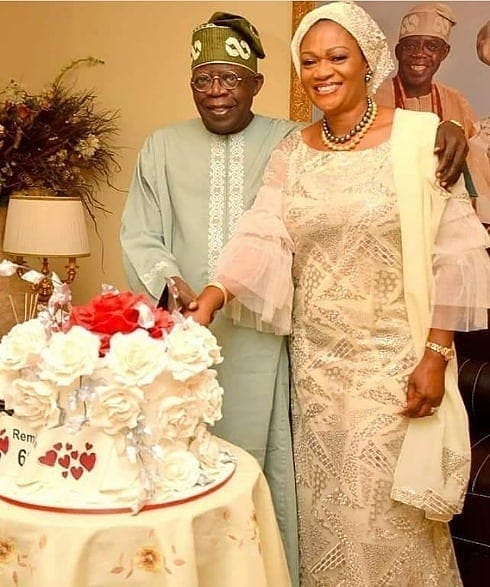
When the military coup occurred in Niger on 26 July 2023, Tinubu was appalled. He had spent the early part of his political career as a member of the dissident National Democratic Coalition (NADECO), which bitterly opposed the psychopathic military regime of General Sani Abacha.
Under Abacha’s extremely cruel rule (1993-1998), journalists were imprisoned or murdered; environmentalists who protested crude oil spilling into rivers were hanged; university students demonstrating on the streets were raked with submachine gunfire; many of Tinubu’s NADECO colleagues were killed in a string of bomb blasts. Tinubu himself was lucky that he survived, only suffering the indignity of being incarcerated without charge. Under the Abacha dictatorship, the Nigerian economy tanked.
So, it is no surprise that President Tinubu as Chairman of the Nigerian-created ECOWAS was initially keen to enforce the rules and regulations of the organization, which allows for military intervention in troubled member-states.
In this endeavour, he received enthusiastic support from the Americans deeply worried about the potential for Wagner/Russian movement into Niger and ecstatic support from the French who are struggling to hold onto the flailing tatters of the fraying neocolonial La Francafrique system.
The French were ecstatic because that if Nigeria was not already minded to enforce ECOWAS rules in the case of Niger then there was nothing France could do to push things in the direction that she wants— short of intervening herself as happened in Ivory Coast.
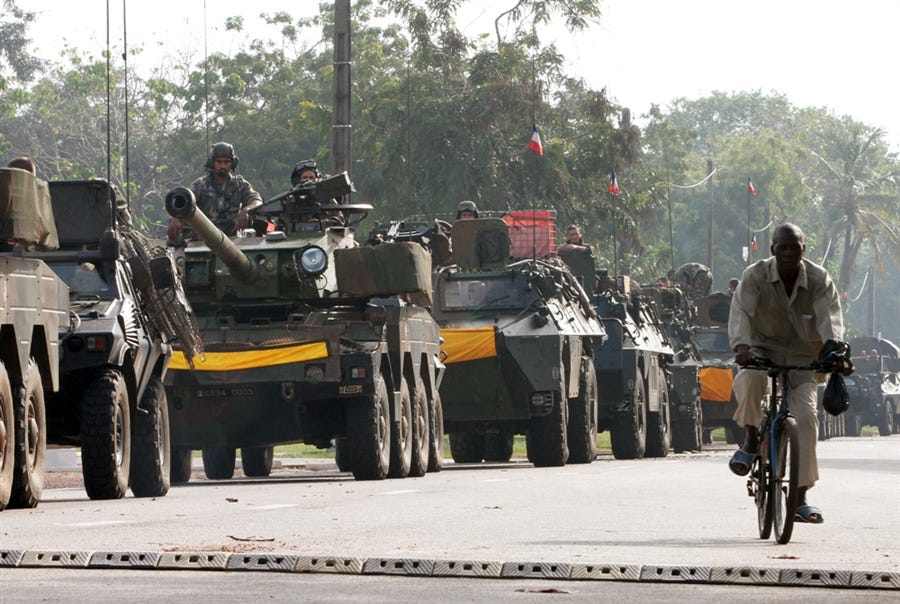
When the coups of Burkina Faso and Mali occurred, the French could not even get an audience with then Nigerian President Muhammadu Buhari to argue their case for an ECOWAS intervention in both countries. The Senegalese and Ivorian leaders were sympathetic to Macron’s push for armed intervention in Mali and Burkina Faso, but ECOWAS troops could not go into action without Nigeria’s approval.
Despite American pressure for an immediate intervention in Niger, Tinubu stridently stuck to the well-laid out procedures of ECOWAS, which is a peace dialogue followed by armed intervention as a last resort. This was the same procedure used during the Gambian Constitutional Crisis (2016-2017). The peace dialogue terminated after nearly six weeks and a Nigerian-led ECOWAS intervention followed on 19 January 2017.
However, domestic opposition within Nigeria to any armed intervention in Niger Republic burst out and stymied Tinubu’s plans.
In early August, the influential state governments of Sokoto, Kebbi, Yobe, Katsina, Zamfara, Jigawa and Borno declared their opposition. All seven Northern Nigerian states share a border with Niger Republic, which places them on the frontline of any potential cross-border floods of refugees.

Although Tinubu remains under pressure from the smaller ECOWAS member-nations to intervene, he cannot ignore the anti-interventionist stance of the seven Northern state governors as nearly all of them are members of his own political party, All Progressives Congress. In fact, Zamfara is the only state among the seven not governed by Tinubu’s party.
Just days ago, Tinubu publicly told the Americans that he was now focussed on a diplomatic resolution of the conflict even as Nigeria’s military chiefs continue their plans for an armed intervention, should Tinubu change his mind— a prospect which is becoming less likely with each passing day, in my own opinion.

Tinubu had no qualms about telling off the Americans. After all, they had backed his third-party challenger during the February election. And when he was declared “winner of the election”, the Americans had hesitated before recognizing his “victory” through gritted teeth.
No way is he discarding the anti-interventionist opinions of Northern power brokers that handled the vast vote-rigging machine that put him in power in order to please Americans who never wanted him to be President.
In a recent meeting with a group of anti-interventionist Islamic scholars, Tinubu publicly stated that he is using his position as ECOWAS Chairman to hold the line against the rabid eagerness of the smaller member-states to launch an intervention in Niger.
This revelation, which supports my previous analysis, was widely covered by many local newspapers, radio stations and TV channels within Nigeria. One example is this report from the widely-read ThisDay newspaper.
While appointing the Islamic scholars as additional peace emissaries, Tinubu complained that the three-year-transition to democracy proposed by the putschists of Niger was too long. He said he wanted a shorter period and a specific timetable.
In other words, Tinubu is willing to compromise with the coup leaders given their newfound willingness to negotiate and their agreement to allow his emissaries access to Bazoum— a privileged access that was denied to Victoria Nuland when she visited.
Tinubu’s stance is in direct conflict with the hardline posture of smaller member-states of ECOWAS who want no haggling with the Niger putschists over the duration of their stay in power. They want military intervention to send a cold message to any potential gang of coup plotters in their own countries.
The French are obviously not pleased with this new development and Macron ranted about it publicly:
Well, the dogs bark, but the caravan moves on. Nobody of significant power within the West African subregion is listening to what Macron is saying even if there are kernels of truth in some of his words.
I am specifically talking of Macron’s highlighting of President Bazoum’s ethnic minority background, which has the potential to cause a resumption of the currently frozen ethnic conflict between the rebels of Northern Niger and the national state of Niger. I discussed this matter in details in a previous update linked here.
Moving on…
Tinubu pushed the ECOWAS Commission to engage with the putschists in earnest. So, the Commission has quietly dropped its “no compromise” stance and is now echoing Tinubu’s complaint that the three-year-transition period for the restoration of constitutional order is too long and needs to be shorter.
It is my considered opinion that no amount of American pressure will push Tinubu in any direction that does not start with a haggle with the junta leaders over the length of their stay in political power.
Tinubu is likely to listen to the suggestions put forward by the redoubtable Algerians, who are Nigeria’s partners in the Trans-Sahara Gas Pipeline Project and security affairs of the Chad Basin Area.
My prediction is that Tinubu will compel ECOWAS to put forward the Algerian suggestion of a six-month transition back to electoral democracy. Of course, it could be slightly longer or slightly shorter than six months.
I doubt the coup leaders of Niger would accept any crimp on their ability to keep power for as long as they want. Even their three-year-transition period is probably a ruse to pacify ECOWAS. The putschists of Guinea used that delaying tactic to great effect after they shot their way to power in September 2021. Two years later, they remain in power and refuse to conduct elections as they had promised ECOWAS to forestall military intervention.

Another group that would be extremely unhappy with any talk of delaying the exit of the Niger putschists would be the smaller member-states of ECOWAS as I have repeatedly mentioned. One of the biggest fears that Tinubu would harbour as he tiptoes along the path to a peaceful resolution of the Niger crisis is the possible outbreak of rebellion against his control of an organization that Nigeria founded in 1975 to foster regional integration under its leadership.
The Americans would very much like things to get back to status quo ante. That is, getting back to the situation before the 26 July coup d'état. For them, it is quite simple. They don’t want Russia anywhere near Niger. They would take some comfort from the fact that Prigozhin has been rudely extracted from his earthly existence shortly after appearing in a video filmed in the deserts of Mali.
Tinubu is scheduled to attend the UN General Assembly (UNGA) in New York on 18 September 2023. On her visit to Nigeria, Deputy Secretary of State for African Affairs, Mrs. Molly Phee, said that Biden was keen to meet Tinubu on the sidelines of the UNGA.
The Nigerian President accepted Biden’s invitation, but told the visiting American official that he is now focussed on a diplomatic strategy for resolving the Niger imbroglio.
In other words, American calls for intervention would not be considered until all the peaceful ways of resolving the situation have been exhausted.
There is even a possibility that some kind of deal with the putschists would have been clinched by the time Biden gets his chance for a face-to-face meeting with Tinubu in mid-September.
If such a deal could be hammered out, the biggest loser would be France, having failed to influence Tinubu’s steering of the ECOWAS ship.
The Americans would not necessarily oppose a deal that allows the coup leaders a brief stay in power provided the junta does not invite Russia into Niger Republic. That is the only thing they care about.
So would the coup leaders accept a six-month-long stay in power if ECOWAS were to propose it to them? Well, we will see…
THE END
Dear reader, if you like my work and feel like making a small donation, then kindly make for my Digital Tip Jar at Buy Me A Coffee

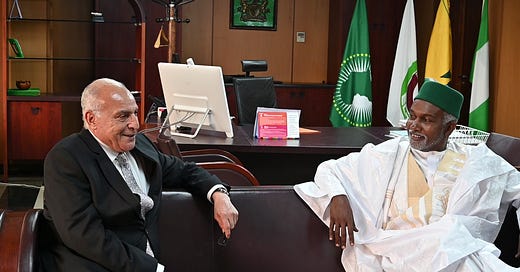




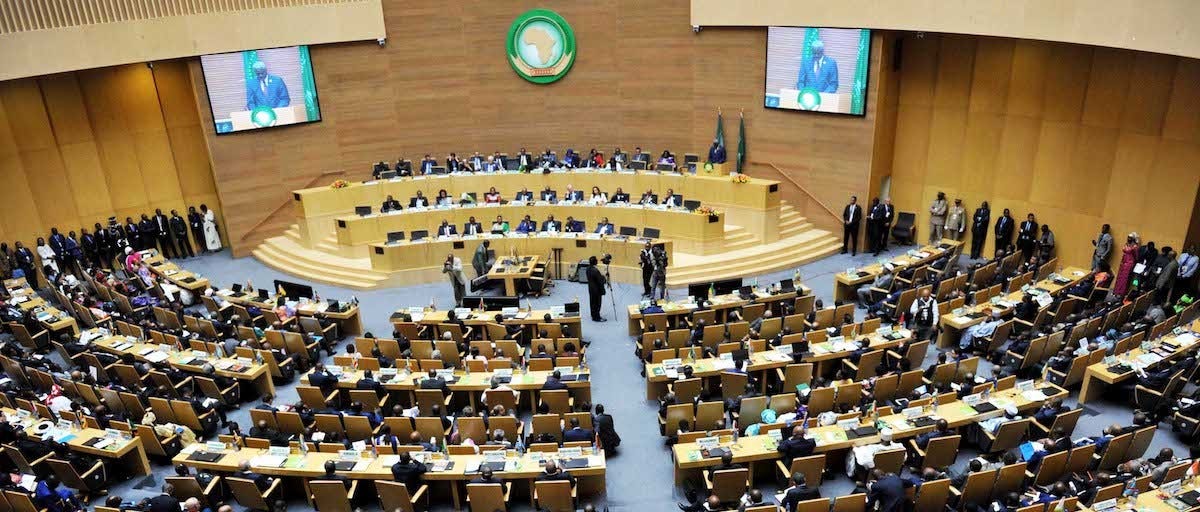

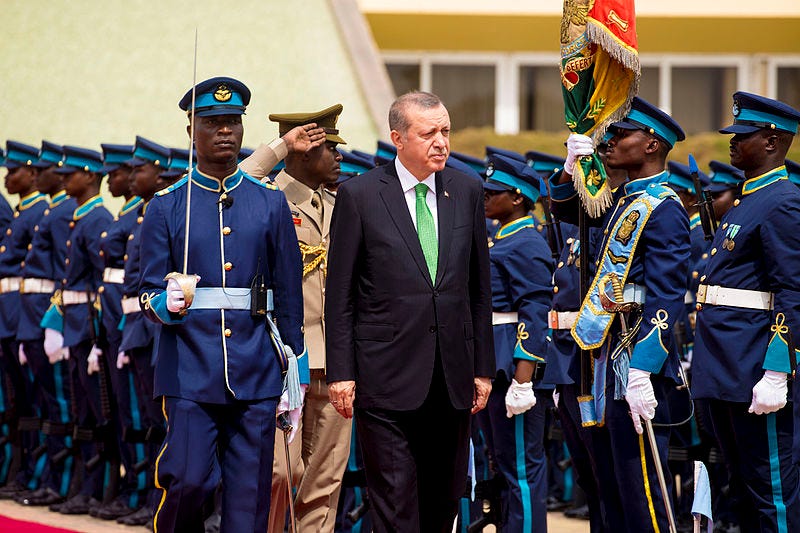


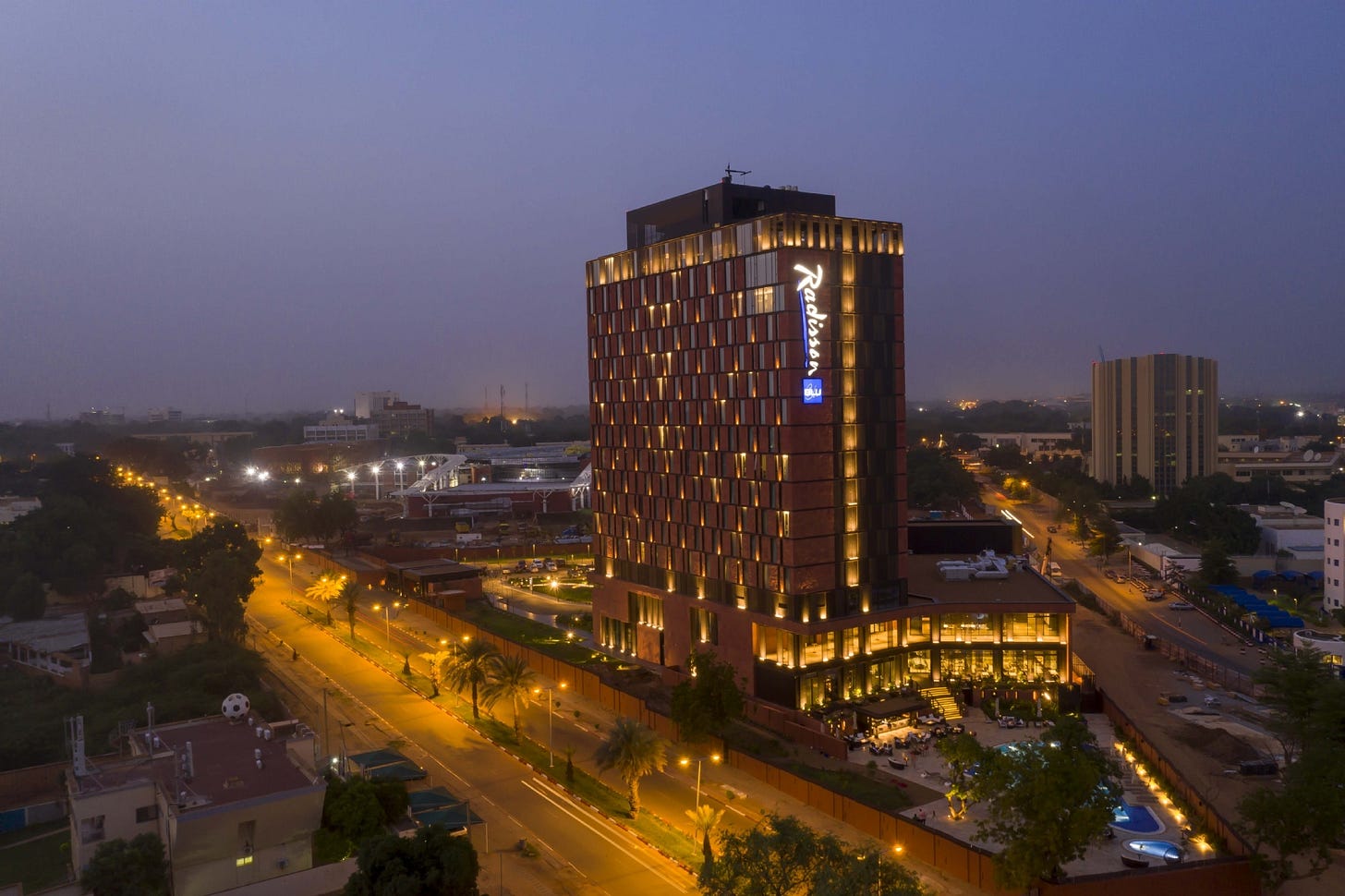



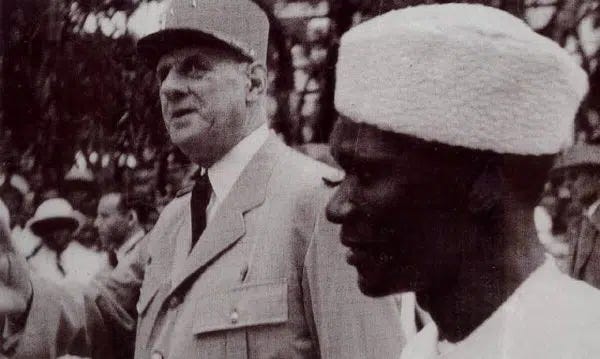




Thank you CHIMA for this most comprehensive reporting and very interesting analysis.
I'm moving you to the top of my reading board, outstanding.
I want to recognize this light on the mediatic darkness (and apologize, before of nothing else, for my English, is not my native language and since i finished the highschool never again a writen english word has been born form my fingers). Especially, your good understanding and transmission of complex issues, making emphasis on the multiple variables in play, especially the regional and local ones that are forgotten for occidental journalist that think in himselfs as the top of the smartness, located in the propaganda war, taking part and judging a complex situation just for the name.
See all the conflicts under the focus of United States vs Russia vs Xina and nothing else is a mistake, it's a stereotypation that drive us to confussion and ignorancy (wise words about this were said through Walter Lippmann). Congratulations for this, difficult to find in our days.
In a sense, is something nice to see how internal differences in Nigeria make pressure to the executive decissions. I won't be naif (I know what moves political actions), but this is something weird to see and unthinkable we can say, in my country, Spain. Hopefully, democraces and it's inherent electoralism, were tied to the crucial and important topics. For the things that I am reading about Africa (making one of those big stereotypes), I see a wave of pragmatism and common points of agreement in important issues, like the stability, the grow through infraestructures, soberany of their own resources and of the commerce of it, etc...
Is unsane to think in that a new conflict that, probably, will destabilize the region, is the best chance for the region. It's unsane for pragmatic reasons that the past has shown us, but also for moral ones. Hopefully, this diplomatic way will be fertile.
You have been a really good discover. I ask you, and to someone else that read this topic, if know any substack or blog like yours from other places in the world.